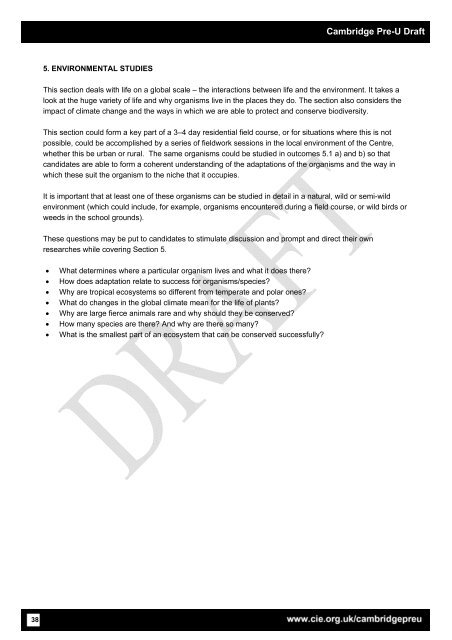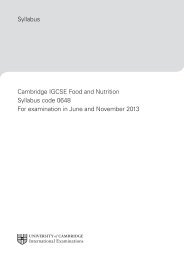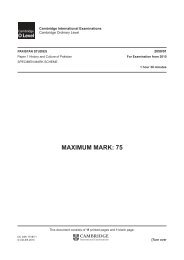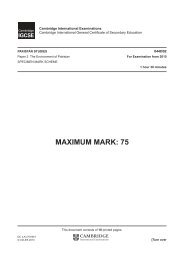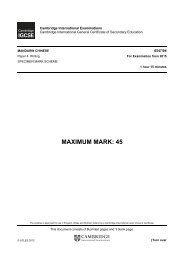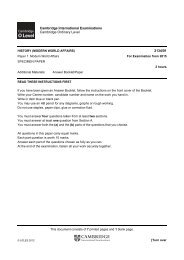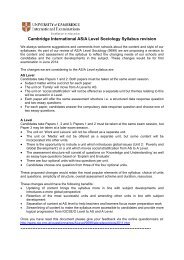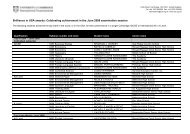Cambridge Pre-U Syllabus - Cambridge International Examinations
Cambridge Pre-U Syllabus - Cambridge International Examinations
Cambridge Pre-U Syllabus - Cambridge International Examinations
Create successful ePaper yourself
Turn your PDF publications into a flip-book with our unique Google optimized e-Paper software.
38<br />
5. ENVIRONMENTAL STUDIES<br />
<strong>Cambridge</strong> <strong>Pre</strong>-U Draft<br />
This section deals with life on a global scale – the interactions between life and the environment. It takes a<br />
look at the huge variety of life and why organisms live in the places they do. The section also considers the<br />
impact of climate change and the ways in which we are able to protect and conserve biodiversity.<br />
This section could form a key part of a 3–4 day residential field course, or for situations where this is not<br />
possible, could be accomplished by a series of fieldwork sessions in the local environment of the Centre,<br />
whether this be urban or rural. The same organisms could be studied in outcomes 5.1 a) and b) so that<br />
candidates are able to form a coherent understanding of the adaptations of the organisms and the way in<br />
which these suit the organism to the niche that it occupies.<br />
It is important that at least one of these organisms can be studied in detail in a natural, wild or semi-wild<br />
environment (which could include, for example, organisms encountered during a field course, or wild birds or<br />
weeds in the school grounds).<br />
These questions may be put to candidates to stimulate discussion and prompt and direct their own<br />
researches while covering Section 5.<br />
• What determines where a particular organism lives and what it does there?<br />
• How does adaptation relate to success for organisms/species?<br />
• Why are tropical ecosystems so different from temperate and polar ones?<br />
• What do changes in the global climate mean for the life of plants?<br />
• Why are large fierce animals rare and why should they be conserved?<br />
• How many species are there? And why are there so many?<br />
• What is the smallest part of an ecosystem that can be conserved successfully?


